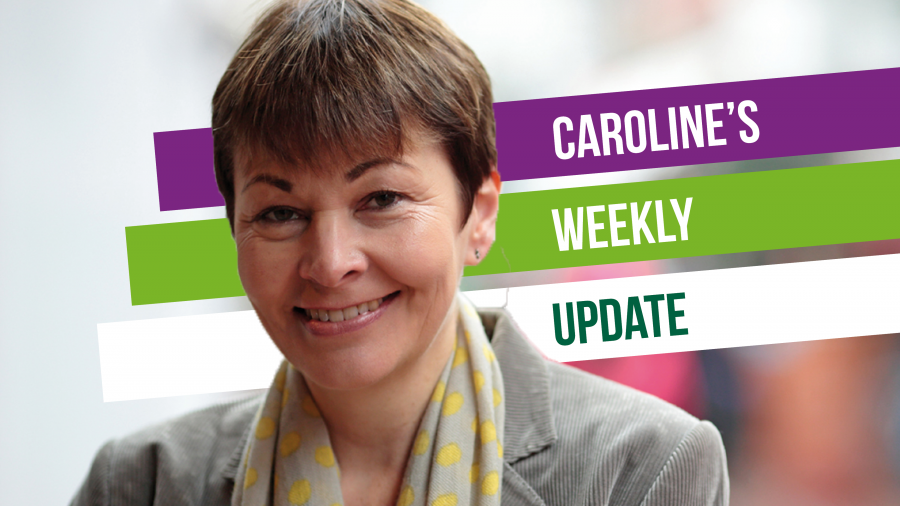Second coronavirus lockdown
The second lockdown has forced the Government to revise its plans to end the furlough scheme at the end of October, and I am glad it has now been extended to the end of March. But the lack of support for so many of the self-employed is a stain on the Government’s response, and completely undercuts ministers’ claim to be “putting their arms around” everyone.
I have been fighting for justice for the more than 3 million self-employed and freelancers since the beginning of the Covid crisis. In the past week, I challenged the Chancellor about his utterly misleading claim that those excluded from support earned more than £50,000. He refused to budge. I also challenged the Prime Minister about support for the self-employed, and in particular urged him to delay the reintroduction of the minimum income floor for Universal Credit which unfairly discriminates against anyone who has a variable or unpredictable income. I’m pleased that, on this point, the Government saw sense and the following day, it was announced that the MIF not be reintroduced until March.
Both the new lockdown and the Government’s lack of support for the self-employed came up for discussion in Any Questions on BBC Radio 4 on Friday, when I was one of the panellists. We also talked about trust in democracy in the light of the US elections, the preparedness for Brexit (or lack of it) and whether the coronavirus crisis had lessons for how we addressed the climate emergency. You can listen to the programme here.
A Covid exit strategy
The Government squandered the first lockdown by failing to use the time to prepare a Covid exit strategy, and in particular a properly functioning Test, Trace, Isolate and Support system. It cannot afford to waste the second one. As a member of the all-party group on Coronavirus, I have been part of drawing up the Covid-Secure UK plan, which has the support of scientists, health professionals and politicians from across the political spectrum. The strategy aims to avoid a continuous cycle of lockdowns and school or workplace closures. It focuses on stricter short-term measures, and more intense testing and tracking including at borders. I spoke about the Covid-Secure plan on Sky News – and you can find out more about it here.
Coronavirus and support for the arts & culture sector
The arts and cultural sector has been especially hard hit by Covid restrictions and I’m glad that many venues have been given a financial lifeline by the Culture Recovery Fund set up to help cultural venues stay afloat during the crisis. The grants are being administered by the Arts Council and I had a meeting with the area director of the Arts Council, Hedley Swain, to learn more about the process. I used the opportunity to press for more support for those organisations that have yet to receive any.
The Brighton and Hove situation
I continue to be briefed on a weekly basis on the Covid situation in Brighton and Hove, the infection rate, where any pockets of infection are located, the performance of test and trace operations and what financial support is available for local businesses. I know BHCC is stepping up support for vulnerable people during this second lockdown, particularly access to food and provisions, and supporting people’s mental health.
Legal action over the Russia Report
When the Russia Report was finally published in July, it revealed very disturbing evidence that Russian meddling in the UK’s electoral processes was highly likely over the last six years. Yet it’s been brushed aside by the Prime Minister who’s taken the extraordinary attitude that nothing more needs to be done. Many of us disagree which is why I and other MPs, together with a non-profit organisation All the Citizens, are taking legal action over this response. We want to see a comprehensive, independent inquiry to examine the weaknesses in our democratic system, not so past votes can be re-run but so we can understand what needs to be done to protect our democracy. I wrote about this legal action in The Independent.
Brighton, Hove, Portslade and the climate emergency
Together with the city's other two MPs, I took part in a virtual event with local residents about the challenges our city faces as a result of the climate and biodiversity crises. We talked about how we can work together to meet those challenges, the Council’s declaration of a climate emergency, and the work it is doing to reduce emissions in our city.
The FT Global Food Systems summit
I was interviewed by the FT’s science editor at the paper’s global food summit about why we need a transition to agro-ecology, to protect soil and biodiversity and restore our broken food system. It’s essential not only for our food security but to help tackle the climate emergency.
The Climate & Ecological Emergency Bill
Two months after I first tabled the bill in Parliament, I was excited to see the formal publication of the Climate & Ecological Emergency Bill which sets out a pathway for meeting the temperature goals of the Paris Agreement, protects nature and biodiversity, and provides a critical role for citizens in how we transition to net zero emissions, as we must. My Early Day Motion in support of the Bill continues to gain support, though we need more MPs to come on board. You can see my short video message about why the Bill is so important here.




Join The Discussion